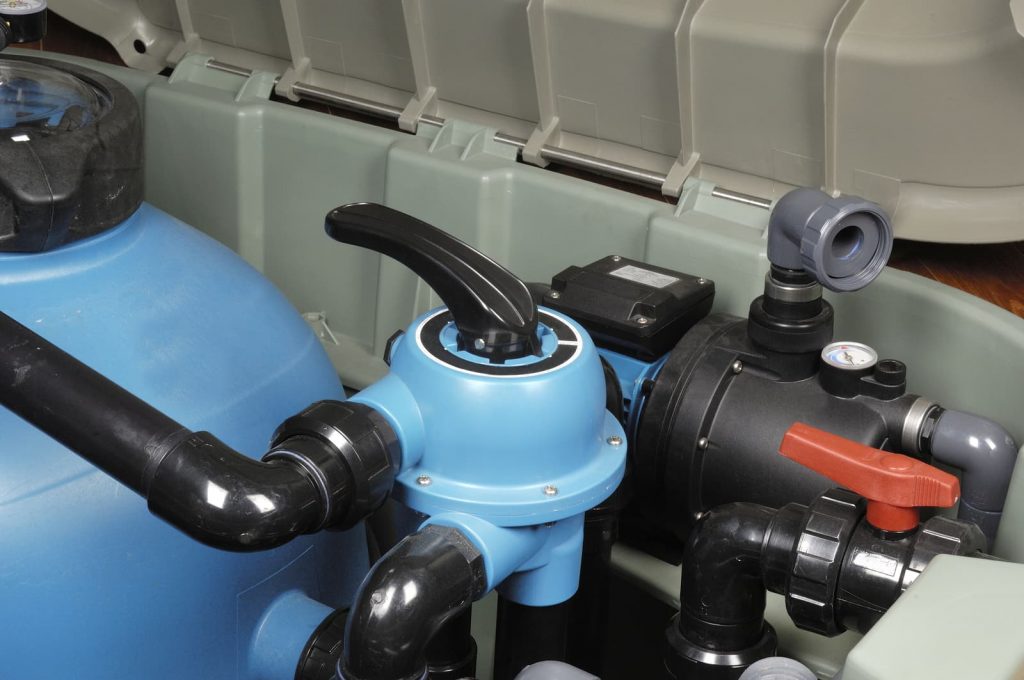Pool Pump Problems | Troubleshooting Common Issues
As the owner or an operator at a swimming facility, you depend on the motors that run the pool or spa equipment to keep everything up and running. When the pool pump motor experiences issues, it can bring the entire facility to a halt. It is the responsibility of a Certified Pool Operator® to know some basic troubleshooting techniques when they experience motor problems. If you are the owner of a residential pool, you should have your motor issues taken care of by a trusted and trained professional. The following are the best practices for basic troubleshooting with pool or spa motors.
Noisy Pool Pump Motor
Sometimes a pool pump motor makes too much noise, which can be caused by both small and large issues. Sounds can be caused by vibrations between the pump base and the base or concrete pad the motor is sitting on. Make sure the motor is secured properly to its base to remedy the issue. Worn down bearings in the motor can also cause increased noise. Bearings wear down as the pump ages. This sound will continue to get louder until the motor burns out. Replacing the bearings will solve this. Cavitation from improper suction line sizing, leaks in the piping, a blockage in the suction line or a low pool water level can also make for a noisy motor. Cavitation can sometimes be corrected by throttling back on the return valve a little bit, but never more than halfway.
Pool Pump Failing to Prime
If your swimming pool pump fails to prime, first check for a suction leak to see if there is enough water in the strainer housing. There may be a leak at any joint, especially at the first fitting screwed into the strainer housing. The strainer cover may be loose, unevenly tightened, or an O-ring under the strainer could potentially be worn down needing lubrication or replacement. Check to see if the suction pipe is clogged or if debris has bypassed the pump basket. The pump could also be above the pool water level, requiring a longer time to prime the pump.
Return Flow Bubbles
If you notice bubbles in the return flow, check if there is a strainer with a loose cover or broken gasket and replace them if necessary. The pool water level may be too low allowing air to mix with the water through the skimmer – raise the water level if this is the case. The skimmer weir may be stuck in the ‘up’ position which allows water to mix with air in the suction line. Check for leaks at any connection in the suction piping or inside any suction valve at the stem O-ring. There could also be a leak in the suction side underground piping from a loose joint, damaged plumbing, or a pest infestation.
No Line Pressure
If your pool pump has no or low pressure, you could have a clogged filter, blocked return line, or a valve shut off on the return piping. First, make sure all valves are in the correct position according to the manufacturer’s instructions. Next, you want to check the filter gauge pressure. High pressure indicates a need to backwash. Low pressure will affect water clarity and flow which can be a result of a clog or a need to replace filter media. The pump’s impeller may also be clogged – check the impeller by first shutting off the pump and then removing the basket.
Pool Pump Motor Experts
These are just a few common troubleshooting techniques for issues with your pool pump motor. For a greater understanding, it’s best to become a Certified Pool Operator®. You can learn from the experts and become CPO® certified at Pool Operation Management. Pool Operation Management’s award-winning CPO training courses train you on how to properly operate a swimming pool or spa facility.
Our services include inspections, service, leak detection, repairs, and pool owner training. Our residential services will keep your pool clean, chemically balanced, and safe for everyone. Our commercial services include supervision, training, service, certified pool operators, as well as chemicals and supplies. We even provide expert legal witness services. For the very best in pool operation, contact us today.








